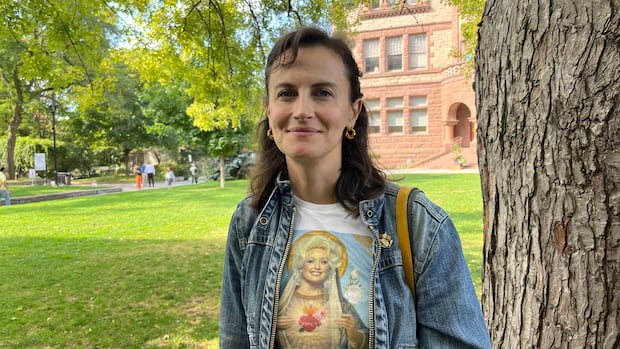
"It's pretty unusual in the medical system for a patient to be tasked with finding their own cure. But that's what happened to Stephanie Azzarello in 2023 when she was told she needed a liver transplant or she would die. Azzarello has primary sclerosing cholangitis, a rare chronic liver disease that causes damage to the bile ducts and the liver."
"Instead, she needed to find someone who was willing to undergo a major surgery to donate part of their liver to her. No one in her family or close circle of friends was a match, so she was forced to go public. I mean, I'm not asking for directions. I'm asking for a vital organ, recalls Azzarello, now 41. It was terrifying, but I knew I didn't have a choice because I was going to die on that list."
"Dr. Mamatha Bhat, a clinician scientist at the University Health Network Ajmera Transplant Centre in Toronto, is working to change how patients are prioritized for liver transplants. (Elizabeth Hoath/CBC) Dr. Mamatha Bhat is trying to change the system that puts Azarello and so many other patients in that position. She's a clinician scientist at the University Health Network Ajmera Transplant Centre in Toronto. It's the biggest transplant hospital in North America."
Stephanie Azzarello developed primary sclerosing cholangitis, a rare chronic liver disease, and after a decade required a liver transplant to survive. She was placed on the deceased-donor waiting list but was told a suitable organ was unlikely, so she needed a living donor. No family or close friends matched, and a stranger south of the border donated part of her liver. Dr. Mamatha Bhat at the University Health Network Ajmera Transplant Centre in Toronto is working to change the Model for End Stage Liver Disease (MELD) prioritization because the blood-test–based score can disadvantage women and patients with rare conditions like PSC.
Read at www.cbc.ca
Unable to calculate read time
Collection
[
|
...
]